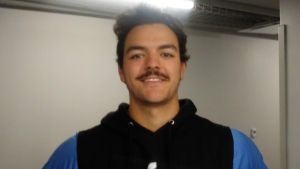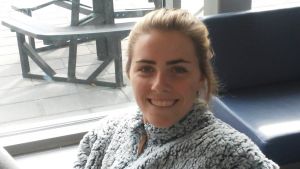The National College Athletics Association now allows student-athletes to be compensated, Cabrini students have a generally positive attitude towards the decision.
On Oct. 28, 2019, the NCAA lifted its ban on student-athletes being able to be compensated in all three divisions. In part this IS a reaction towards the passing of California Senate Bill 206 or the “Fair Play Act” signed into law on Sept. 30, 2019.
The NCAA Board of Governors sent a letter to the California State Senate on Sept. 11 in hopes that they could discourage the bill from being passed.
Under the old regulations, if players were found out to have been compensated in any form except for scholarship money, they would receive some form of punishment from the NCAA, in order to focus on the student part of student-athlete.
The new regulations state that student-athletes would be compensated as collegiate athletes and not as professionals independent of their respective universities.
“I think it’s a long time coming,” Alex Greco, a senior exercise science major and lacrosse player, said. “Personally, I’m not sure how it will benefit only but a few Cabrini students.”

There are around half a million student-athletes that participates in the three NCAA divisions.
“It’s not going to affect anyone here,” Lattana Sithara, a senior international business major and swimmer, said. “We’re a [NCAA] Division III school and no one is going to really benefit from this change.”

Major professional athletes have weighed in as well. LeBron James said that feels for college athletes who would benefit greatly from the ability to profit off their likeness.
“I have heard about it, but I don’t know much about it,” Ashley Tutzauer, a senior finance major and women’s soccer player, said. “I don’t really know how it will affect Cabrini and if anything, it will only have an effect on Division I schools.”

The current opinion of Cabrini student-athletes is that while it is a good thing that players will be allowed to get paid, there is a question of how it will affect them personally.
This is compounded at Cabrini since not many if any students would benefit from this since the university is a Division III school, so athletes are not even allowed to be on an athletic scholarship.
“It’s hard to say how I feel,” Rachel Sweeny, a senior biology major, said. “It feels like the student-athletes are kind of greedy since they already get full-ride scholarships for playing.”

Currently around $986 million dollars is spent on student-athletes while taking in $14 billion in revenue. The money spent on 4,400 coaches currently is around $1.2 billion.
“I have not heard about the news,” Andrew Carango, a sophomore chemistry major, said. “I don’t think they should be paid because it’s not a job, it’s an activity at this point.”

Everything from what the company produces the jerseys to the shoes that the players wear to what sports drink they consume is all negotiated by executives behind closed doors.
The details on how student-athletes will be compensated are still to be determined. In April consultative talks will begin. By January 2021 all three divisions will have to submit their proposed regulation for approval.


